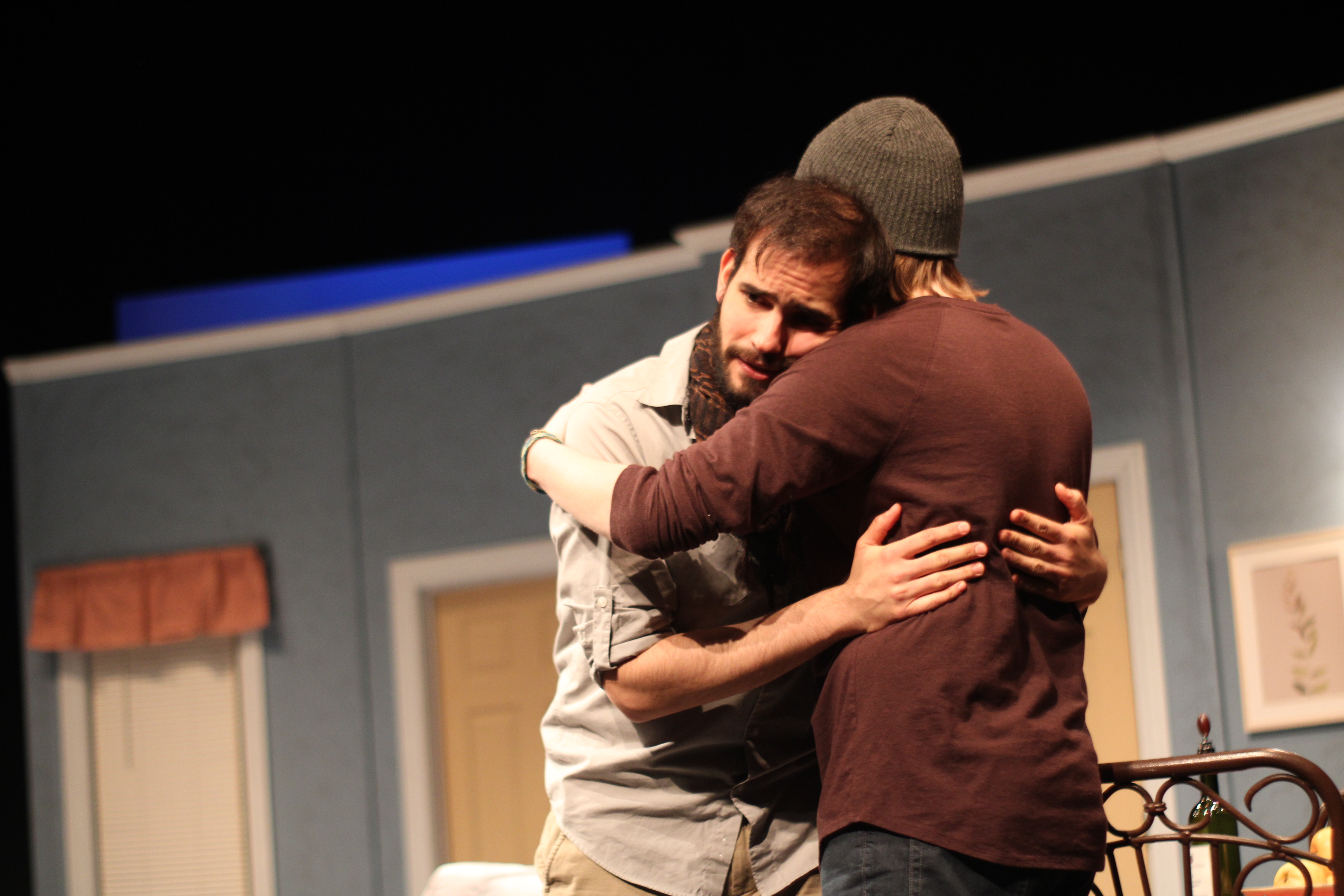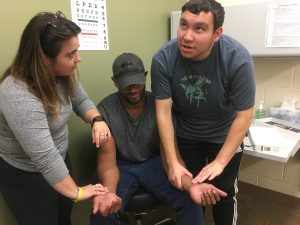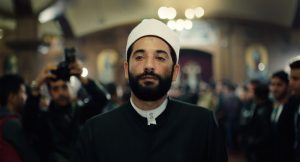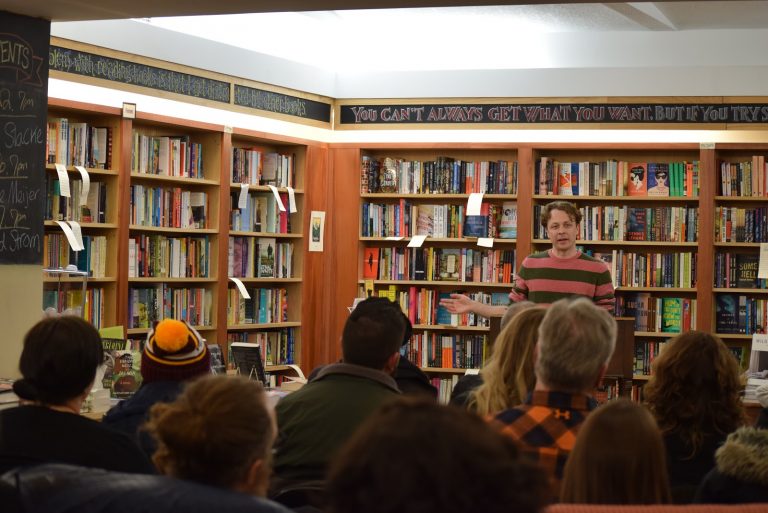Brandon General
Share:
On the evening of Nov. 22, my eyes were opened by the theater production KISS. The play was a joint collaboration by the Metropolitan State University theater and Minneapolis Community and Technical College. It was shown at the Whitney Fine Arts Theater in downtown Minneapolis from November 14-23.
The production ran approximately 90 mins and touched on a number of important subjects. It started out as a light-hearted, comical love tale between a pair of soap opera-watching friends, but evolved into a serious exploration of Syrian culture and how words can get lost in translation.
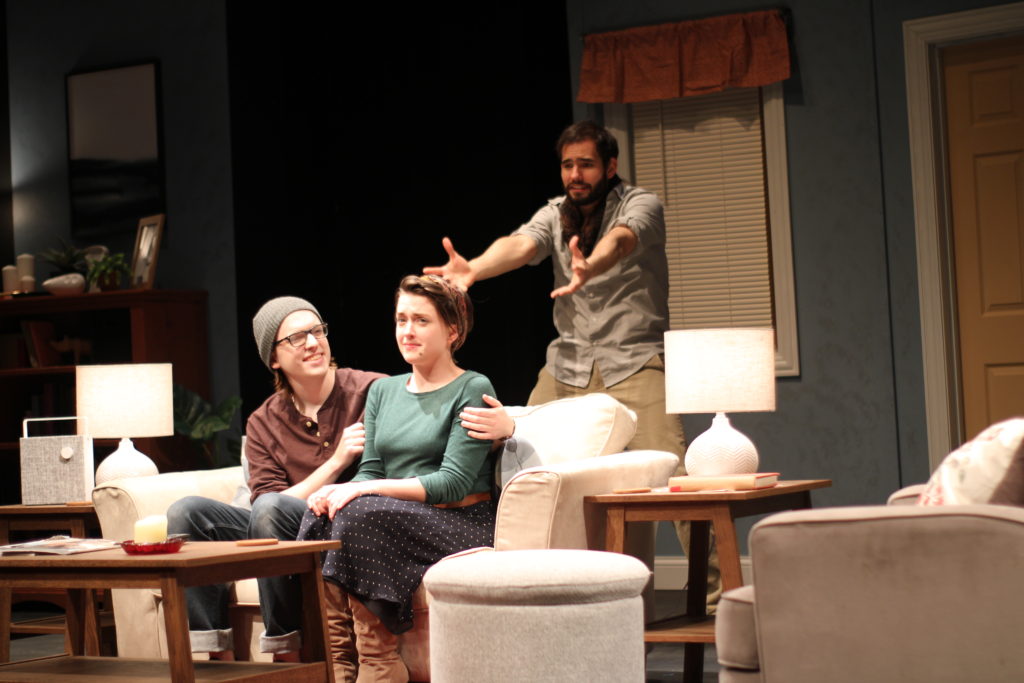
The play’s director, Jonathan Beller, stated he was passionate about bringing this story to a Minnesota stage after seeing playwright Guillermo Calderón’s KISS production in 2017. Beller, like Calderon, intended for this play to further the discussion over who can tell another culture’s story and also explore what happens when certain cultural differences create misinterpretation.
As someone who has been both an active participant and observer of community theater for over a decade, I was impressed by this performance. The actors all easily transitioned from carefree and unconcerned into more careful and intentional characters as the story unfolded.
The cast was composed of six talented actors, two of them Metro State students.
Metro State student, Adam Sutcliffe, portrayed the character of Ahmed, a devoted boyfriend who, unfortunately, is blindsided by an unexpected revelation. Another Metro State student, Guled Badri, portrayed an interpreter in a Syrian detention center.
Ahmed’s strong commitment to his girlfriend, Hadeel, played by Brighid Burkhalter, prompted him to want to take the next big step in their relationship. Unfortunately, his best friend, Youssif, played by Raul Arambula, had other plans in mind for Hadeel’s future. The resulting betrayal led Sutcliffe to deliver one of Ahmed’s most memorable lines, “I’ve been happy my whole life, until now.”
Badri’s character wasn’t introduced until about the halfway point of the play, when the production became significantly more serious in nature. He acted as the interpreter for a detained Syrian woman, played by Maria Kallas. He also provided context for what certain things in Syrian society actually refer to, including a troubling explanation of the word “kiss.”
I believe plays like KISS will always be popular, because they force us, as the audience, to examine what we think we know about a given situation, then help us challenge those perspectives. This production was an opportunity to learn more about the plight of the Syrian people, and for me, it provided the right amount of entertainment and education. That is what making good theater is all about.

